Kicking off the next generation of wireless.
All of the major U.S. carriers are hard at work on their 5G strategy. AT&T, T-Mobile, and Verizon have launched 5G networks and are aggressively expanding those networks through 2019 and into 2020. Recently, Sprint's 5G network was devoured by T-Mobile and taken offline as T-Mobile refarms Sprint's spectrum. 5G service not only provides faster speeds but also reduced response times allowing for new services and cloud computing not previously available. For now, the major difference between LTE and 5G will be speed but as coverage continues to roll out to new areas, more services that rely on instant connectivity should become possible.
Jump to:
Frequencies and coverage
| Carrier | Bands |
|---|---|
| Verizon | n261 (28GHz) |
| T-Mobile | n71 (600MHz) n260 (39GHz) n261 (28GHz) n41 (2.5GHz) from Sprint |
| AT&T | n5 (850MHz) n260 (39GHz) |
Building a 5G network is a balance between capacity and coverage. With the high-frequency bands, known as mmWave, carriers get access to huge chunks of spectrum allowing for fiber-like speeds over the wireless network. While it's not the first time the frequencies of mmWave bands have been used, this is the first time it has become economically feasible to use them for mobile broadband.
Lower frequencies are less susceptible to interference meaning fewer but larger towers need to be built to cover an area than mmWave, but since there is less lower-frequency spectrum available, plus more people will be sharing one tower, speed is much more limited. With mmWave, you will have a tower for smaller areas like a neighborhood. This is kind of like how your Wi-Fi is very fast but only works in your home.
Where Verizon has 5G
Verizon is starting small with two cities deploying what it calls 5G Ultra Wideband (UWB). In short, this version of 5G uses large chunks of high-frequency bandwidth, around 28GHz, that produce very high speeds but suffer in other areas such as coverage over distance and building penetration. While coverage is dense enough in cities to be included on the list, coverage is still only available in parts of the cities outdoors.
Verizon has released a set of maps to help you pinpoint where 5G is available in your cities. This is a helpful addition but it does show off some of the main coverage weaknesses of UWB.
At this time, it is easy to be discouraged about such minimal 5G coverage but this deployment is only a start for Verizon — it has continued to regularly deploy new cities. Early tests have been positive with us seeing speeds up to 1.4 Gbps. Although these massive speeds are impressive, they probably won't hold up under a full Chicago load, but it's still exciting to see.
We're also seeing more specific expansion to places like NFL stadiums or race tracks. While great as a tech demonstration, this doesn't offer much to the customer just yet.
- Atlanta, GA
- Boise, ID
- Boston, MA
- Charlotte, NC
- Chicago, IL
- Cincinnati, OH
- Cleveland, OH
- Columbus, OH
- Dallas, TX
- Denver, CO
- Des Moines, IA
- Detroit, MI
- Grand Rapids, MI
- Greensboro, NC
- Hampton Roads, VA
- Hoboken, NJ
- Houston, TX
- Indianapolis, IN
- Kansas City, MO
- Little Rock, AR
- Los Angeles, CA
- Memphis, TN
- Miami, FL
- Minneapolis, MN
- New York City, NY
- Omaha, NE
- Panama City, FL
- Phoenix, AZ
- Providence, RI
- Salt Lake City, UT
- San Diego, CA
- Sioux Falls, SD
- Spokane, WA
- St. Paul, MN
- Washington D.C.
5G on Verizon: Everything you need to know
Verizon 5G
Ultra Wideband Service
A fast-growing millimeter-wave network
High-speed downloads and a quickly expanding network make Verizon's 5G implementation of the most complete in the nation.
Where T-Mobile has 5G
T-Mobile started building a 28GHz or 29GHz high-band mmWave network in the middle of 2019 before following it up with 5G on its 600MHz spectrum. While this lower-frequency 5G isn't as fast as we've seen with mmWave networks, its large coverage area makes it more practical for users. Add to that T-Mobile's future usage of its newly acquired Sprint 5G spectrum and the T-Mobile 5G network is poised to be one of the most capable in the nation. Samsung's Galaxy S20 series phones will all support both the low-band and mid-band spectrum with the larger S20 models supporting high-band as well.
Nationwide coverage
T-Mobile already has an interactive 5G coverage map ready to go. The Samsung Galaxy S20 series, as well as the LG V60 5G, are confirmed to work with both the Sprint and T-Mobile 5G network when the time comes. The older OnePlus 7T 5G McLaren and Samsung Galaxy Note 10+ 5G work with T-Mobile's 600MHz 5G as well.
Notably, on June 1, 2020, T-Mobile announced a partnership with carrier GCI in Alaska to provide 5G coverage in Anchorage. This makes T-Mobile the first carrier to have 5G coverage in all 50 store states.
Metro by T-Mobile is also getting 5G on all of its plans with the same phones as T-Mobile. Many other MVNOs based on T-Mobile's network are starting to see 5G support as well.
Sub-6 vs mmWave
T-Mobile's sub-6 network is on bands n71 and n41 (Sprint) at 600MHz and 2.5GHz respectively. Its mmWave network is on n260 and n261 at 39GHz and 28GHz respectively. Simply put, a higher frequency has less range and has worse building penetration.
As it stands, the raw speed with T-Mobile's n71 600MHz sub-6 network increases compared to LTE aren't anything to write home about. The problem is that twofold since there is relatively less bandwidth available on this long-range spectrum and that a phone may prefer to connect to a weaker 5G signal over a stronger LTE signal. This puts 5G in a worst-case possible scenario for head to head speeds.
To improve this, T-Mobile will continue to upgrade more towers with 5G capabilities as well as adding support for n41 2.5GHz 5G. Sprint managed to secure quite a bit of spectrum so speeds are a decent upgrade over LTE for the most part but it doesn't reach nearly as far. Of course, T-Mobile customers with compatible phones and Sprint customers with a Galaxy S20 series phone will be able to access both bands on T-Mobile's 5G network.
Finally, if you're looking for pure speed, mmWave is the answer but has a range more similar to Wi-Fi than sub-6 5G. With a tower struggling to cover a city block and useless on the far side of a brick wall, it's better suited to very dense areas and even buildings like stadiums. With the cost of tower installation multiplied by the huge number of towers needed, mmWave is going to take years to build out.
High-band, millimeter-wave coverage is available in parts of these cities.
- Atlanta
- Cleveland
- Dallas
- Las Vegas
- Los Angeles
- New York
What about Sprint and Sprint customers
Since completing its purchase of Sprint at the beginning of April, T-Mobile has wasted no time in making use of its new assets. On April 21, T-Mobile announced that it has added 2.5GHz coverage to Philadelphia and later to parts of New York City. This will add speed and capacity to T-Mobile's existing 5G network with customers having access to both the low-band and mid-band networks. On May 5, 2020, T-Mobile switched on the full 5G network in New York including low-band, mid-band, and mmWave networks.
Sprint had 5G coverage in 10 cities before T-Mobile took over.
- Atlanta, GA
- Chicago, IL
- Dallas-Fort Worth, TX
- Houston, TX
- Kansas City, KS/MO
- Los Angeles, CA
- New York, NY (T-Mobile)
- Phoenix, AZ
- Philadelphia, PA (T-Mobile)
- Washington, D.C.
Only Sprint customers with a Galaxy S20 phone are currently able to access 5G from a Sprint plan since these phones have been updated to support T-Mobile's nationwide 5G network. T-Mobile is refarming Sprint's 5G spectrum for use as part of its own network. That means, however, that Sprint customers with an older 5G phone like the Galaxy S10 5G will get kicked back to LTE since the Sprint version doesn't work with T-Mobile's network. Sprint's coverage maps don't even show 5G anymore.
T-Mobile is allowing customers that are still making payments on Sprint 5G devices like the Galaxy S10 5G, LG V50 ThinQ, or the OnePlus 7 Pro 5G to upgrade to a Galaxy S20 for a discount. T-Mobile is also crediting the customers that purchased the HTC 5G hotspot.
In the long run, T-Mobile will be able to build a fast and strong network with all of that spectrum but it is a real drag for those that were already using Sprint's 5G network.
T-Mobile has also recently added 5G coverage with its low-band network in Detroit, St. Louis, and Columbus, Ohio.
I used T-Mobile's 5G network, and it's a whole lot like using its 4G network 5G on T-Mobile: Everything you need to know
T-Mobile 5G
Low and high-band
Nationwide coverage
T-Mobile is building a nationwide 5G network on low-band and high-band spectrum. It isn't charging customers any more to get on it. With T-Mobile, all you need is the phone and coverage to get 5G.
MVNO 5G
Metro by T-Mobile
Available at Metro by T-Mobile
Prepaid 5G is still 5G
Metro by T-Mobile is an MVNO with a big focus on data and that isn't changing. Like its big brother T-Mobile, all plans on Metro get 5G for no extra charge.
Where AT&T has 5G
AT&T certainly has one of the most impressive lists of cities with available 5G coverage. AT&T has launched the majority of its 5G network for business use. AT&T started with millimeter wave, or mmWave before the more recent release of the Samsung Galaxy S20 5G alongside its low-band 850Mhz deployment for consumers.
On June 5, 2020, AT&T began using Dynamic Spectrum Sharing (DSS) to share portions of the spectrum currently only used for LTE with its 5G network. This will allow towers to use spectrum as needed and provide a smooth transition to 5G without needed to take portions of LTE fully offline. This network has launched in parts of north Texas though it will likely see much wider use later in the year.
If you're on AT&T and you want to access 5G, you'll need either the Unlimited Elite or Unlimited Extra plan. While there will likely be some improvement over LTE using this 850Mhz 5G, it's not going to hit the super-fast speeds we've seen with millimeter-wave. Still, the 850Mhz deployment should have much better coverage than mmWave and be faster than 4G LTE. AT&T is adding 5G access to the Unlimited Started plan starting August 7, 2020.
5G is now shown on AT&T's standard coverage maps which makes it easier than ever to see how far this coverage has made it. It does take a while for these maps to get updated so check out the entire list for the most up-to-date locations.
5GE is not 5G
If you have an AT&T phone, you have seen your phone indicate a 5GE connection even if you don't have a 5G phone or plan that supports 5G. This is because 5GE is not 5G. In order to deploy 5G, a carrier needs a fast fiber connection to the network and upgraded equipment. A 5GE connection is technically LTE but with the most modern hardware and close to a best-case scenario. You may get speeds faster than typical LTE with 5GE but the fact of the matter is, it's just good 4G LTE.
AT&T has recently stopped advertising this name but some people with LTE phones may still see it pop up in some areas. For what it's worth, 5GE represents the best of what LTE can do and should be able to deliver great performance.
Real 5G is available in these cities on AT&T. Keep in mind that not all 5G phones support the mmWave network.
- Alabama
- Anniston
- Birmingham
- Dothan
- Florence
- Franklin County
- Gadsen
- Huntsville
- Mobile
- Tuscaloosa
- Alaska
- Anchorage
- Arizona
- Gila
- Mohave County
- Phoenix (mmWave only)
- Arkansas
- Clay County
- Cleburne County
- Cross County
- Fayetteville-Springdale
- Franklin County
- Fort Smith
- Little Rock
- Madison County
- Polk County
- Pope County
- Quachita County
- California
- Alpine County
- Bakersfield
- Chico
- El Dorado County
- Fresno
- Kinds County
- Los Angeles (sub-6 and mmWave)
- Madera County
- Menlo Park (mmWave only)
- Modesto
- Mono County
- Oakland (mmWave only)
- Redding
- Redwood City (mmWave only)
- Sacramento
- Salinas
- San Bruno (mmWave only)
- San Diego (sub-6 and mmWave)
- San Francisco (sub-6 and mmWave)
- San Jose (sub-6 and mmWave)
- San Luis Obispo
- Santa Barbara
- Santa Cruz
- Santa Rosa
- Sierra County
- Stockton
- Tehama County
- Vallejo
- Visalia-Tulare
- West Hollywood (mmWave only)
- Yuba City
- Colorado
- Colorado Sprints
- Denver
- Fort Collins-Loveland
- Greeley
- San Miguel County
- Connecticut
- Bridgeport
- Hartford
- New Haven
- New London-Norwich
- Deleware
- Kent County
- Wilmington
- Florida
- Bradenton
- Calhoun County
- Citrus County
- Collier County
- Daytona Beach
- Dixie County
- Fort Myers
- Fort Pierce
- Fort Walton Beach
- Gainesville
- Glades County
- Hamilton County
- Hardee County
- Jacksonville (sub-6 and mmWave)
- Jefferson County
- Lakeland
- Melbourne
- Miami (sub-6 and mmWave)
- Miami Gardens (mmWave only)
- Monroe County
- Ocala
- Orlando (sub-6 and mmWave)
- Pensacola
- Putnam County
- Sarasota
- Tallahassee
- Tampa
- Walton County
- West Palm Beach
- Georgia
- Albany
- Athens
- Atlanta (sub-6 and mmWave)
- Bleckley County
- Chattooga County
- Dawson County
- Early County
- Hancock County
- Jasper County
- Liberty
- Macon
- Marion County
- Warren County
- Whitfield County
- Worth
- Hawaii
- Maui County
- Idaho
- Boise City
- Boundary County
- Elmore County
- Idaho County
- Illinois
- Adams County
- Alton-Granite city
- Aurora-Elgin
- Bureau County
- Champaign-Urbana
- Chicago
- Clay County
- Joliet
- Mason County
- Montgomery County
- Springfield
- Vermilion County
- Washington County
- Indiana
- Bloomington
- Brown County
- Decatur County
- Elkhart-Goshen
- Evansville
- Fort Wayne
- Gary
- Huntington County
- Indianapolis (sub-6 and mmWave)
- Kosciusko County
- Muncie
- Newton County
- Randolph County
- South Bend
- Warren County
- Iowa
- Sioux City
- Kansas
- Brown County
- Lawrence
- Topeka
- Wichita
- Kentucky
- Fulton County
- Lexington-Fayette
- Louisville (sub-6 and mmWave)
- Mason County
- Meade County
- Trimble County
- Louisiana
- Baton Rouge
- Beauregard Parish
- Caldwell Parish
- Claiborne Parish
- Houma-Thibodaux
- Iberville Parish
- Lafayette
- Lake Charles
- Monroe
- Morehouse Parish
- New Orleans (sub-6 and mmWave)
- Shreveport
- St. James Parish
- West Feliciana Parish
- Maine
- Portland
- Maryland
- Baltimore (sub-6 and mmWave)
- Cumberland
- Frederick
- Garrett County
- Hagerstown
- Kent County
- Ocean City (mmWave only)
- Massachusetts
- Boston
- New Bedford
- Springfield
- Worcester
- Michigan
- Alger County
- Allegan County
- Battle Creek
- Benton Harbor
- Cass County
- Cheboygan County
- Detroit (sub-6 and mmWave)
- Flint
- Jackson
- Kalamazoo
- Manistee County
- Muskegon
- Newaygo
- Minnesota
- Duluth
- Fargi-Moorhead (North Dakota/Minnesota)
- Chippewa County
- Hubbard County
- Koochinching County
- Le Sueur
- Milwaukee
- Minneapolis
- St. Cloud
- Mississippi
- Jackson
- Missouri
- Bates County
- Callaway County
- Columbia
- De Kalb County
- Joplin
- Kansas City
- Leake County
- Moniteau County
- Saline
- Springfield
- St. Louis
- Montana
- Beaverhead County
- Billings
- Deer Lodge County
- Great Falls
- Lincoln County
- Mineral County
- Nevada
- Lander County
- Las Vegas (sub-6 and mmWave)
- Reno
- Storey County
- New Hampshire
- Portsmouth
- New Jersey
- Atlantic City
- Hunterdon County
- Long Branch
- New Brunswick
- Ocean County
- Sussex County
- Trenton
- Vineland
- New Mexico
- Colfax County
- Grant County
- La Cruces
- Lincoln County
- San Juan County
- Santa Fe County
- New York
- Albany
- Binghamton
- Buffalo
- Chautauqua County
- Elmira
- Glen Falls
- Jefferson County
- New York City (sub-6 and mmWave)
- Orange County
- Otsego County
- Oxnard
- Poughkeepsie
- Rochester
- Syracuse
- Utica-Rome
- Yates County
- North Carolina
- Anson County
- Charlotte (mmWave only)
- Hickory
- Raleigh (mmWave only)
- Ohio
- Ashtabula County
- Cincinatti
- Cleveland (mmWave only)
- Clinton County
- Columbiana County
- Columbus
- Dayton
- Hamilton
- Hancock County
- Lima
- Mansfield
- Mercer County
- Morrow County
- Perry County
- Ross County
- Sandusky County
- Springfield
- Steubenville
- Tuscawaras County
- Williams County
- Youngstown
- Oklahoma
- Grant County
- Oklahoma City (mmWave only)
- Oregon
- Clatsop County
- Eugene-Springfield
- Lincoln County
- Medford
- Portland
- Salem
- The Dalles
- Pennsylvania
- Allentown
- Altoona
- Bedford County
- Bradford County
- Crawford County
- Erie
- Greene County
- Harrisburg
- Huntington County
- Jefferson County
- Johnstown
- King of Prussia (mmWave only)
- Lancaster
- Lawrence County
- Lebanon County
- Northeast
- Philadelphia (sub-6 and mmWave)
- Pittsburgh
- Reading
- Sharon
- State College
- Union County
- Wayne County
- Williamsport
- York
- Puerto Rico
- Adjunta Municipality
- Aguadilla
- Aibonito Municipality
- Arecibo
- Ceiba Municipality
- Ciales Municipality
- Mayaguez
- Ponce
- Rincon Municipality
- San Juan
- Rhode Island
- Newport County
- Providence
- South Carolina
- Anderson
- Calhoun County
- Cherokee County
- Laurens County
- Oconee County
- South Dakota
- Kingsbury County
- Marshall County
- Tennessee
- Chattanooga
- Fayette County
- Giles County
- Lake County
- Maury County
- Memphis
- Nashville (sub-6 and mmWave)
- Texas
- Abilene
- Amarillo
- Atascosa County
- Austin (sub-6 and mmWave)
- Beaumont
- Brownsville
- Bryan-College Station
- Burleson County
- Chambers County
- Cherokee County
- Concho County
- Corpus Christi
- Dallas (sub-6 and mmWave)
- Edwards County
- Fannin County
- Galveston
- Houston (sub-6 and mmWave)
- Killeen-Temple
- Laredo
- Lubbock
- Navarro County
- Newton County
- Parmer County
- Runnels County
- San Antonio (sub-6 and mmWave)
- Sherman-Denison
- Tyler
- Victoria
- Waco (sub-6 and mmWave)
- Wilson County
- Utah
- Beaver County
- Box Elder County
- Provo
- Salt Lake City
- Virginia
- Caroline County
- Danville
- Frederick County
- Madison County
- Washington
- Bellingham
- Clallam County
- Ferry County
- Kittitas County
- Okanogan County
- Olympia
- Pacific County
- Richland-Kennewick
- Seattle
- Spokane
- Tacoma
- Yakima
- Washington DC
- West Virginia
- Charleston
- Grant County
- Huntington-Ashland
- Monongalia County
- Parkersburg-Marietta
- Raleigh County
- Tucker County
- Wheeling
- Wisconsin
- Kenosha
- Madison
- Racine
- Sheboygan
- Wood County
- Wyoming
- Casper
- Sheridan County
5G on AT&T Wireless: Everything you need to know
AT&T 5G
Coverage 5G
Low-band and mmWave working together
AT&T's 5G network has been playing coverage catchup with its sub-6 rivals but is closing the gap fast and already covers more than 120 million people in the US.
5G devices are becoming more capable with advancements in 5G modems such as the newer X55 modem from Qualcomm that has replaced the X50 as the most capable 5G chip.
5G is one of the more exciting things to happen to wireless networking in years and has the same exciting feeling that the move to 3G had. If you are a wireless enthusiast and want an easy way to see how 5G is shaping up worldwide, Ookla, the company famous for its internet speed test, has a map showing new locations as providers send them in.
5G on every carrier
Samsung Galaxy S20+ 5G
$1000 at Microsoft $1000 at Amazon $1000 at Best Buy
Fast, smooth, and cutting edge.
Samsung's Galaxy S20+ adds support for 5G on both mmWave and Sub-6 spectrum. The Galaxy S20+ also has a fast 120Hz capable display and a great set of cameras.
Update, July 23, 2020: New AT&T markets have been added. New AT&T plan information added.
The next big thing in connectivity
5G

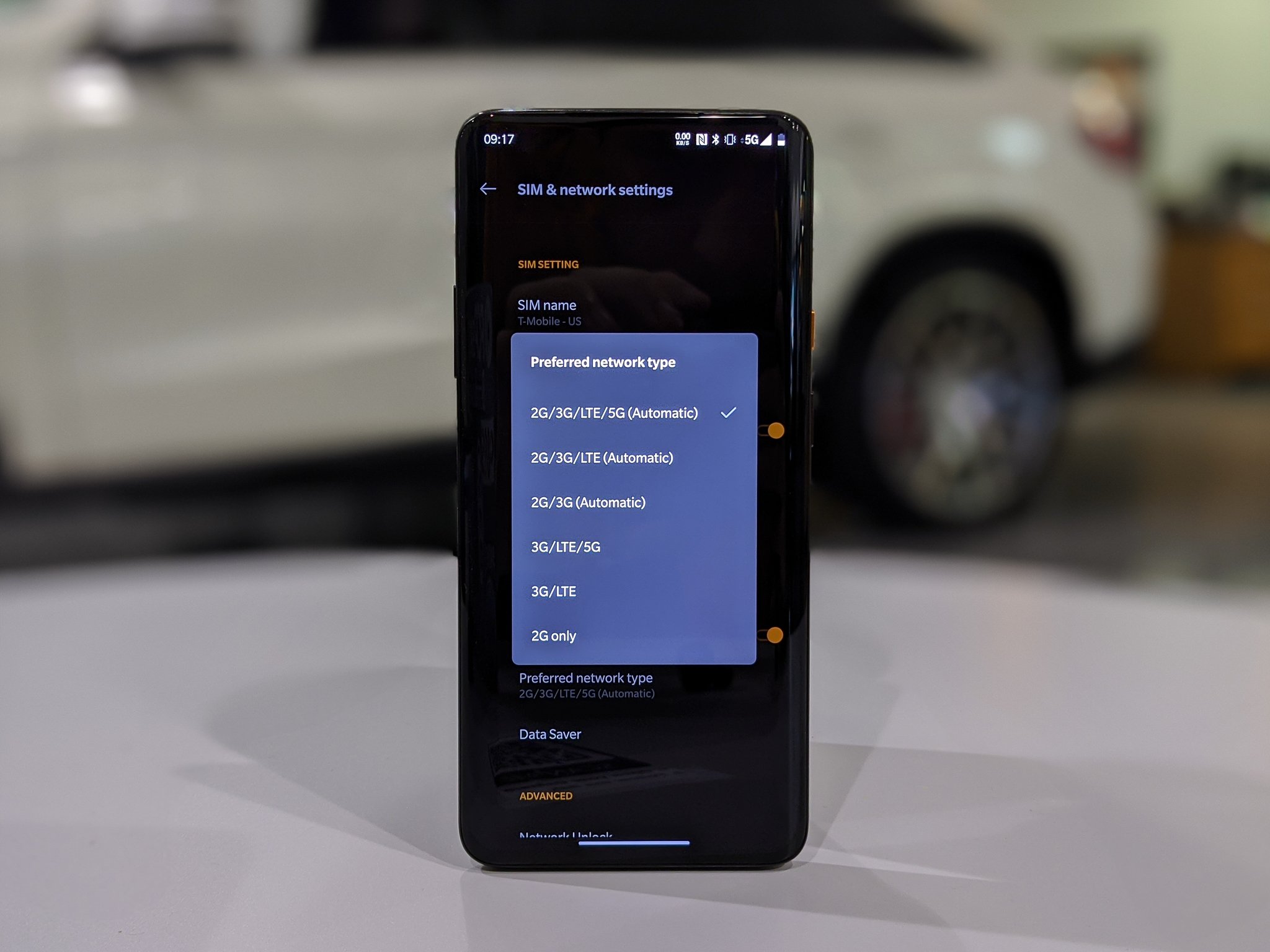
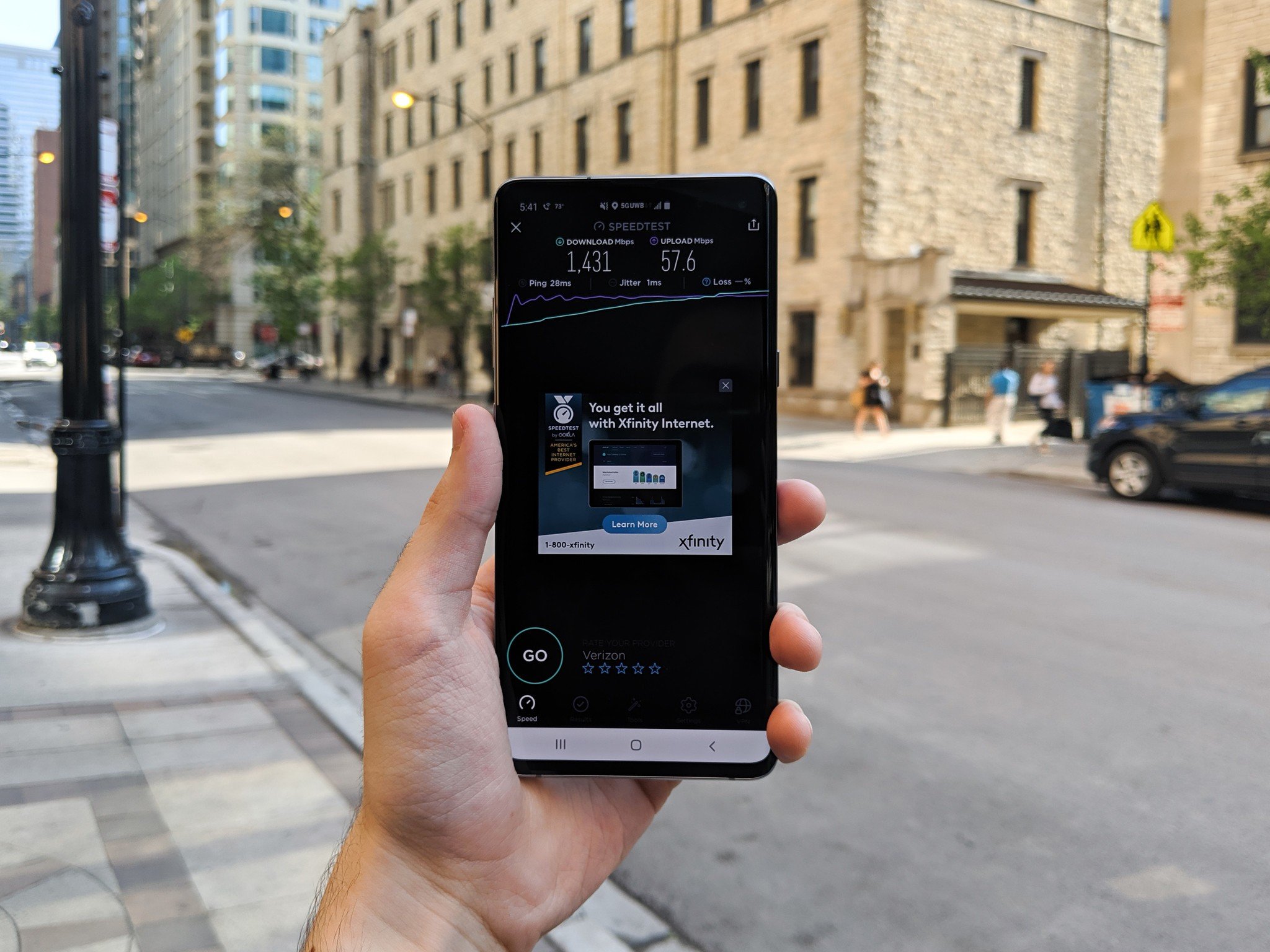
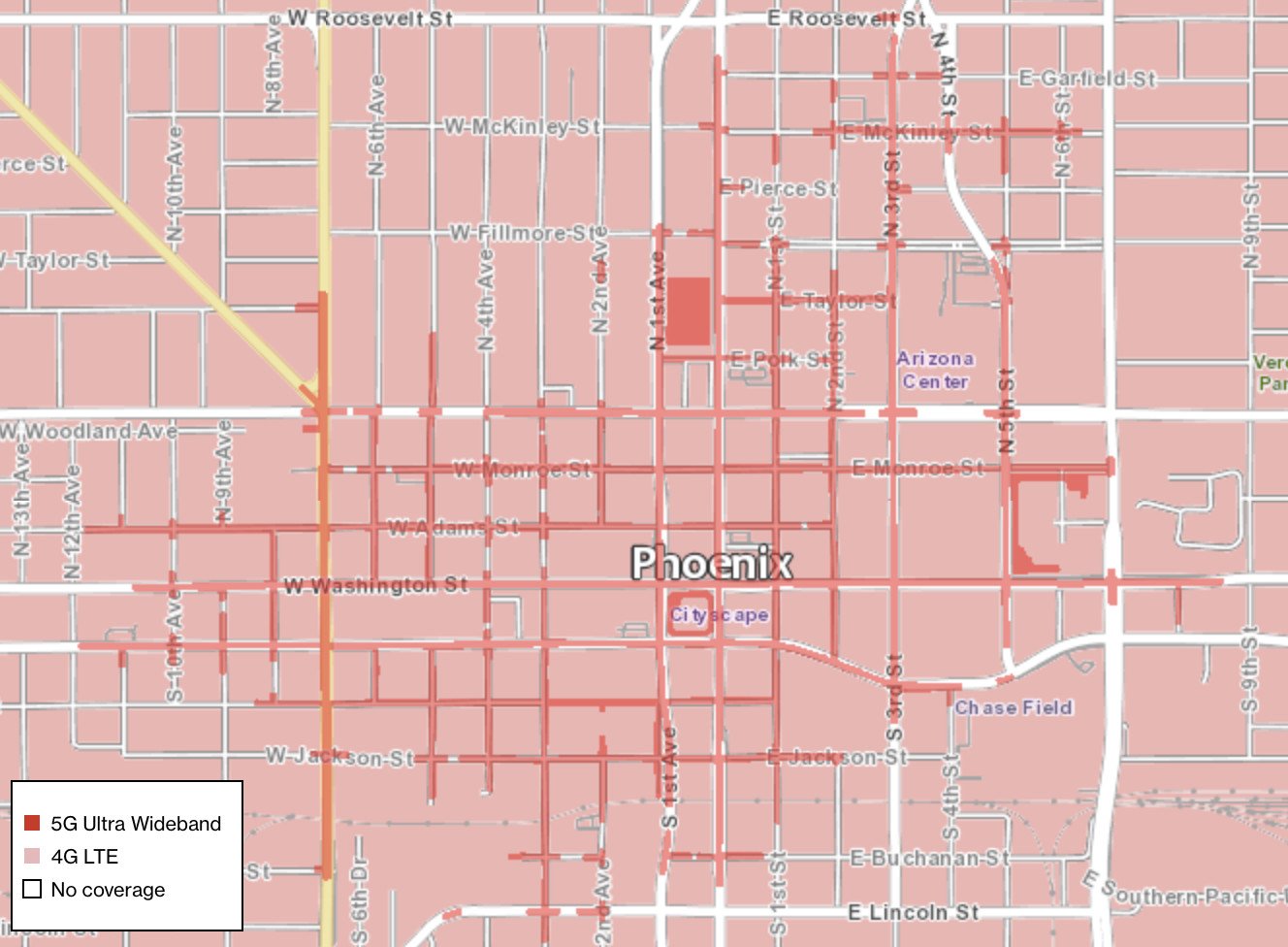
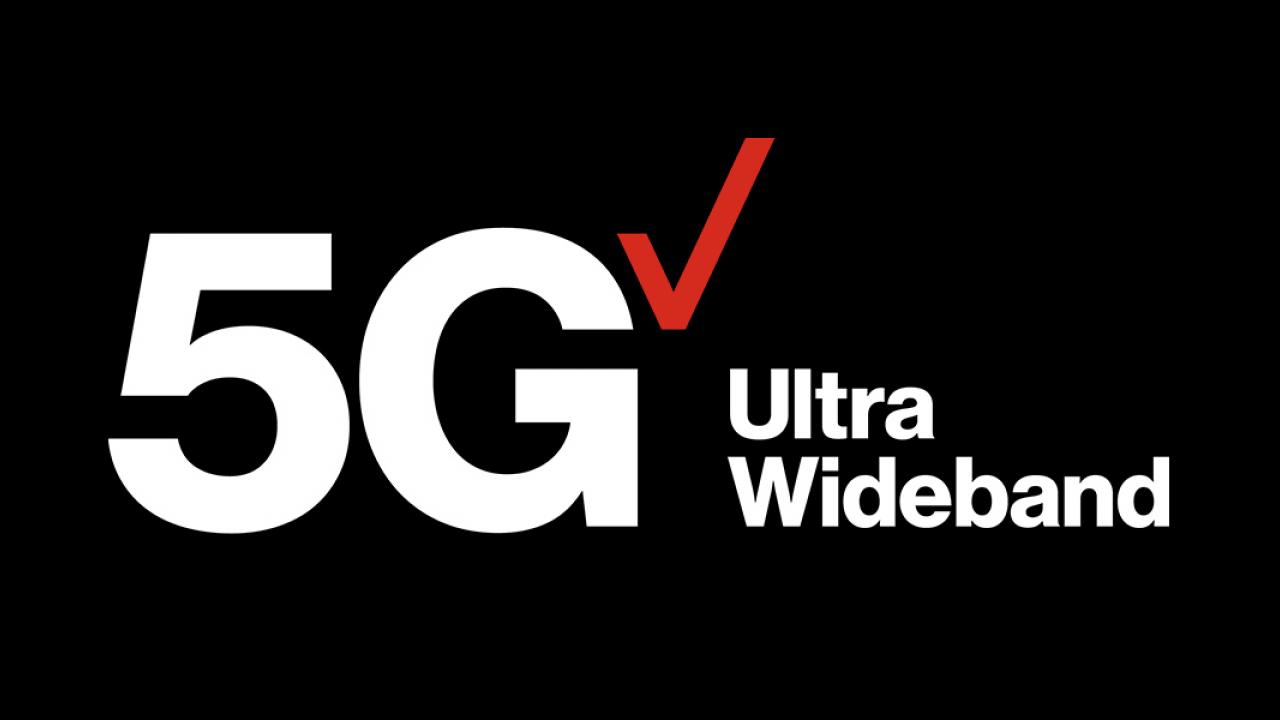


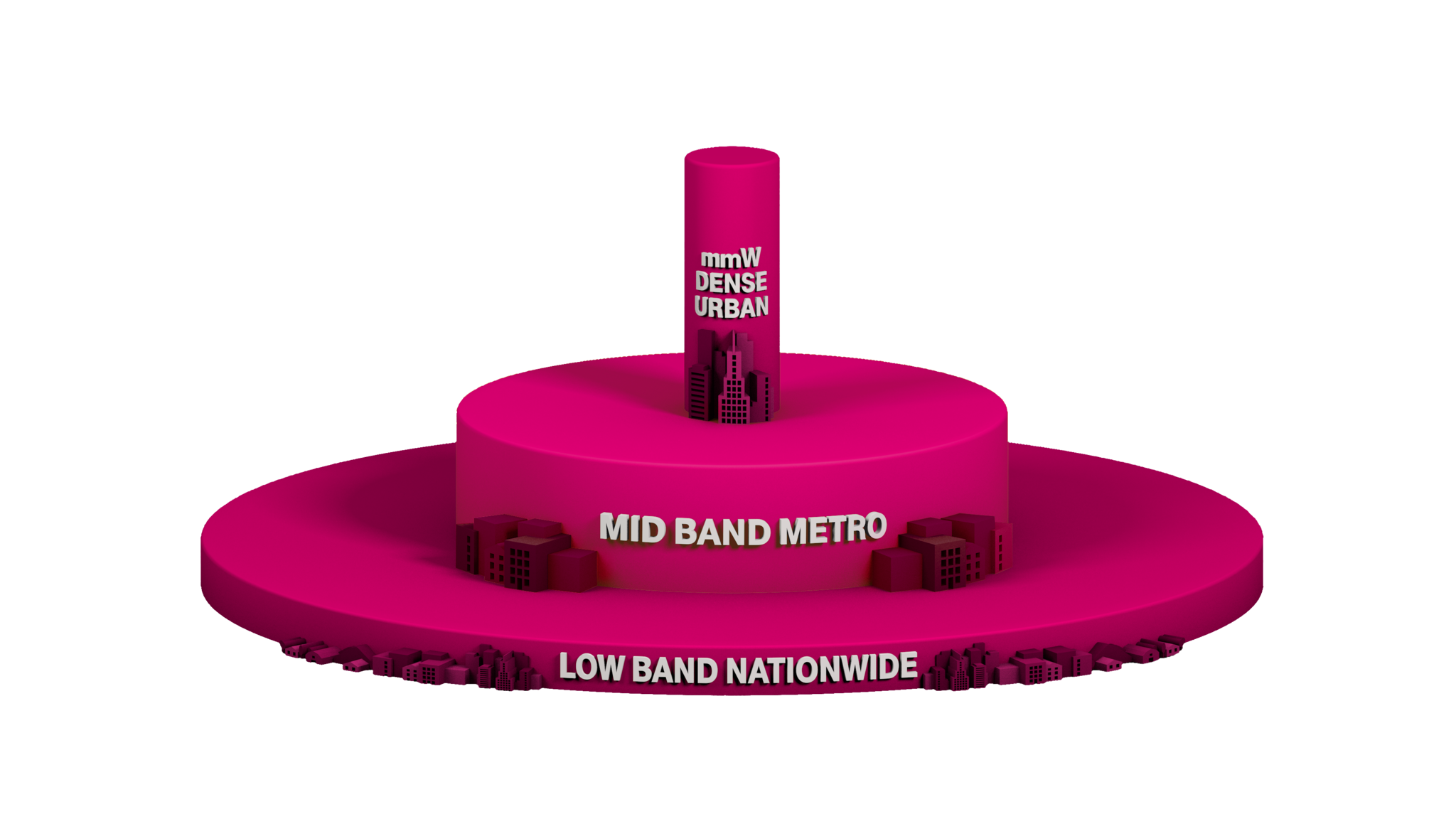
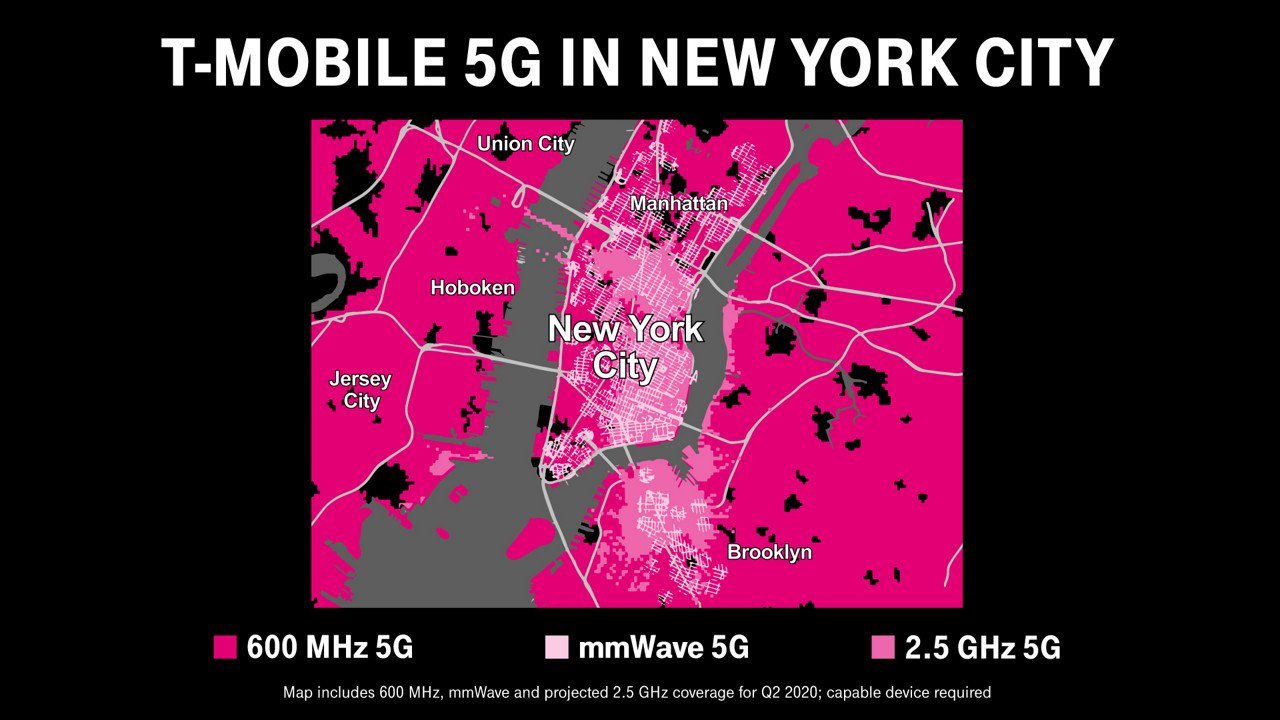





0 Response to "You Can See More: Here's every U.S. city with 5G coverage right now"
Post a Comment